- Learning time
- 10 minutes
- First play time
- 10 minutes
Don´t Mess With Cthulu
Designed by: Yusuke Sato
Don’t Mess With Cthulu is a hidden-role card game inspired by HP Lovecraft’s famous gothic horrors. However despite the theme, this is a very kid-friendly game that families can enjoy.
Before the game begins all players are assigned a secret role – you’ll either be on the Investigators team, or the Cultists. The Investigators want to banish the otherworldy monster that is Cthulu, whereas the Cultists want to release him into this plane of existence, and probably not to set up a friendly corner shop. You won’t know who is on your team, and crucially, you may not even know how many people are on your team!
Then everyone is dealt a hand of cards – most are the Failed Investigation, but a few will be Elder Sign cards and one is the Cthulu card. The cultists want the Cthulu card to be revealed to win, whereas the Investigators need all of the Elder Sign cards flipped over. How it works is like this: everyone looks at their cards, then spreads them out face-down on the table. Beginning with the starting player, everyone then announces how many Elder Sign cards they have and if they have the Cthulu card – but! Whether you lie or tell the truth at this point is entirely up to you…
Having done so, the starting player chooses a single card belonging to another player to flip over. Before the flip, all players can debate whether it’s a good idea, and which other player or card they should choose instead – but ultimately, it’s the active player’s choice. Players don’t have to tell the truth here, and both investigators and cultists will have their reasons to not be completely honest…
After as many cards as there are players have been revealed – assuming the game hasn’t ended – the unrevealed cards are shuffled and dealt out again, with the process repeating until either all Elder Signs are revealed (Investigator win!), or the Cthulu card comes out (Cultist win!)
Which does mean the game could end on the very first card flip. But this is where the lying/truth comes in at the start – because the cultists want to know where the Cthulu card is so they can flip it over. The Investigators want to know where it is so they can avoid it – and this dynamic is reversed with the Elder Signs. Cultists might lie that they have Elder Signs and not have Cthulu to coax an Investigator in. Investigators might lie they don’t have Cthulu when they do. And this bluff/double-bluff/triple-bluff is what the game thrives on – although there’s a slither of gauging the odds, it’s more about gauging the table itself – who’s lying? Who’s telling the truth?
If the idea of the gaming ending so abruptly doesn’t appeal though, also in the box are some insanity tokens. Instead of a one-off game you can play that the losing team takes one token each, and you play again. As soon as one or more players have three insanity tokens, the player/s with the fewest tokens wins.
The guru's verdict
-
Take That!
Take That!
There's a fair amount of accusation flying around.
-
Fidget Factor!
Fidget Factor!
Almost absent.
-
Brain Burn!
Brain Burn!
Low. The rules are very simple. Any burning is more the light smoulder of trying to work out WHO is up to WHAT
-
Again Again!
Again Again!
There's not a lot of variety in the box, but we've found each return visit to be fun. It's really shines when the players take to it, so definitely one for those who like a bit of deduction, maybe with a side-order of trash-talking.

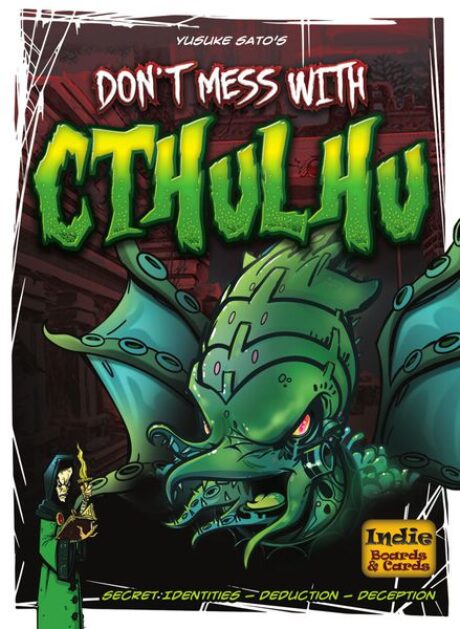
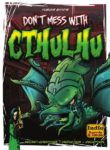
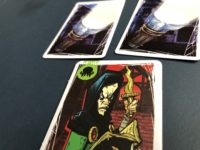
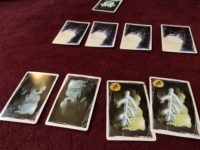
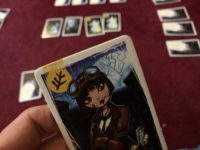



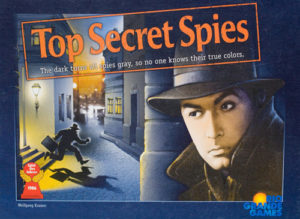
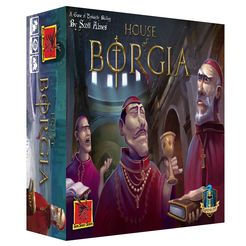
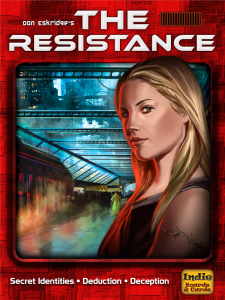
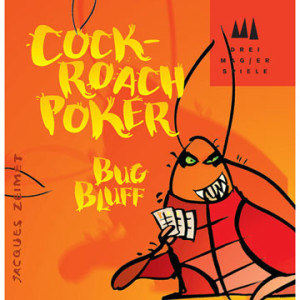
Sam says
I'm no cultist! That is, I've never read Lovecraft. I'm not a huge fan of the artwork, and the fact the game can be over in a fraction of the time in took to deal the cards meant I wasn't anticipating a great deal of affection for Don't Mess with Cthulu... but we've been very pleasantly, boisterously surprised. I'd recommend including the insanity rule: without it the game can feel too brief and turning individual games into rounds instead gives everyone a chance to try and get a 'read' on the other players. A lot of accusatory fun.